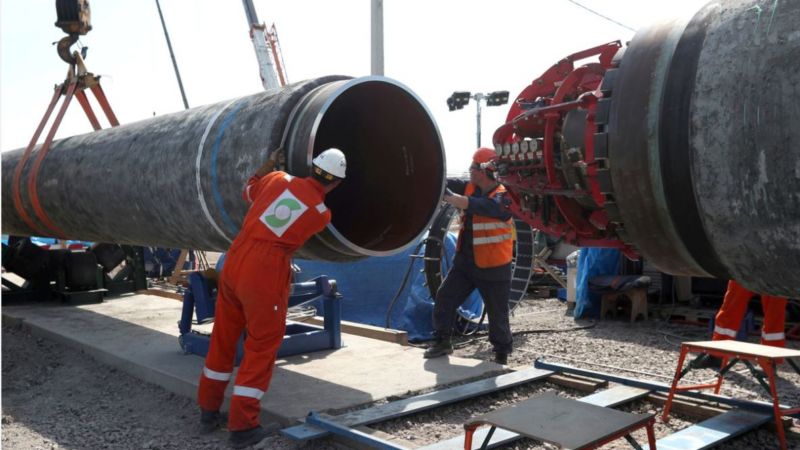The growing wave of sanctions against Russia and its interests should push financial institutions to examine their own supply chain and vendor connections for potential exposure.
HOLLYWOOD, Fla. — As Western sanctions mount against Russia in number and complexity, compliance officers within financial institutions should be scrutinizing their vendors, holding internal discussions about “self-sanctioning,” and seeking advice from the government, consultants, and peers, experts said during a panel at the Association of Certified Anti-Money Laundering Specialists (ACAMS) annual conference this week.
“In a world with this much chaos, what does that mean for firms’ know your customer (KYC), customer due diligence (CDD), and beneficial ownership determination regimes?” asked Gregg Fields, an ACAMS content analyst who moderated the panel. “Everything has changed, right?”
Multiple waves of sanctions have been imposed by several governments following Russia’s invasion of the Ukraine in late-February. And financial institutions can use sanctions compliance vendors and consultants to help cope with the changes, but firms also need deeper knowledge of these relationships among those entities with which they do business.
“Everybody does have vendors, so hopefully prior to the crisis happening you’ve understood this,” said panelist Frederick Reynolds, chief compliance officer with financial service and technology company BREX. Firms need to understand what their vendor can do, what the service level agreements are for the vendor, and how quickly are vendors going to get sanctioned names up on the list, Reynolds added. Given the rapid pace of sanctions in the moment, firms “really have to understand… the capabilities of those vendors and understand how they operate under pressure, which is critically important.”
Reacting in disbelief
The first reaction to the Russian invasion was “disbelief,” rather than the impulse to turn to a pre-existing checklist, said panelist Sarah Runge, a former Treasury official who now is global regulatory director with Facebook Payments at Meta. “Fundamentally, it’s such a different calculus with Russia because it is a G20 country, it’s one of the most integrated economies in the world, and so any checklist I may have established would not have come anywhere near understanding the implications for a company the size of ours,” Runge said.
Indeed, boardrooms and compliance officers are universally reevaluating what this crisis means to their sanctions programs, said another panelist, Alex Zuck, managing director of product strategy in KYC with Moody’s Analytics. “It really means going beyond the (sanctions) lists,” he explained. “The rate of change has been frantic.”
At this point, with no signs of de-escalation of the conflict, there are more discussions about “the cautionary and self-sanctioning and the de-risking we’ve seen at scale,” Zuck said, adding that more conversations are now moving from just being a compliance decision into being a business decision — and compliance professionals should play a key role in those discussions.
“’Should we do business?’ is a different question than ‘Can we do business?'” Zuck said. “It’s a new calculus that we’re all trying to balance.”
Where to turn for help
With sanctions in full swing and financial institutions reacting, where should compliance professionals turn to for advice and help, ACAMS’ Gregg Fields asked.
Panelist Howard Fields, an anti-money laundering, trade sanctions, and export controls compliance counsel with Mastercard, said it is vital to communicate with the government, consultants who formerly worked for the government, and peers at other financial institutions “and just start asking questions like ‘What are you doing?’ or ‘How do you interpret this?'”
By bringing all this information back internally and working with the company’s regulatory counsel group, Howard Fields said it was possible to parse out all the information and map out the route they were going to take and why they’re taking it. “For Ukraine we’re actually creating an entire playbook of what we’ve done step-by-step,” he said.
Runge added that it is important for everyone within the organization to be constantly communicating. “You are communicating more frequently and more rapidly, and everybody’s sort of all- hands-on-deck,” she noted.
Anomaly or new norm?
ACAMS’ Fields noted that firms are spending a lot of money building new sanctions compliance infrastructure to implement the Russia sanctions, asking whether “that will be the new norm or not.”
Mastercard’s Fields said that for the past three years he has been tracking an increase in sanctions activity outside of the United States and noted that last year he requested more staff in the EU to better manage that risk. “So, I think whatever we build out to Russia and Ukraine it’s going to be in existence, and there’s still tensions in other parts of the world,” he explained. “I think sanctions are not going away… whatever has been built out, unfortunately there’s going to be a use for it later on.”







